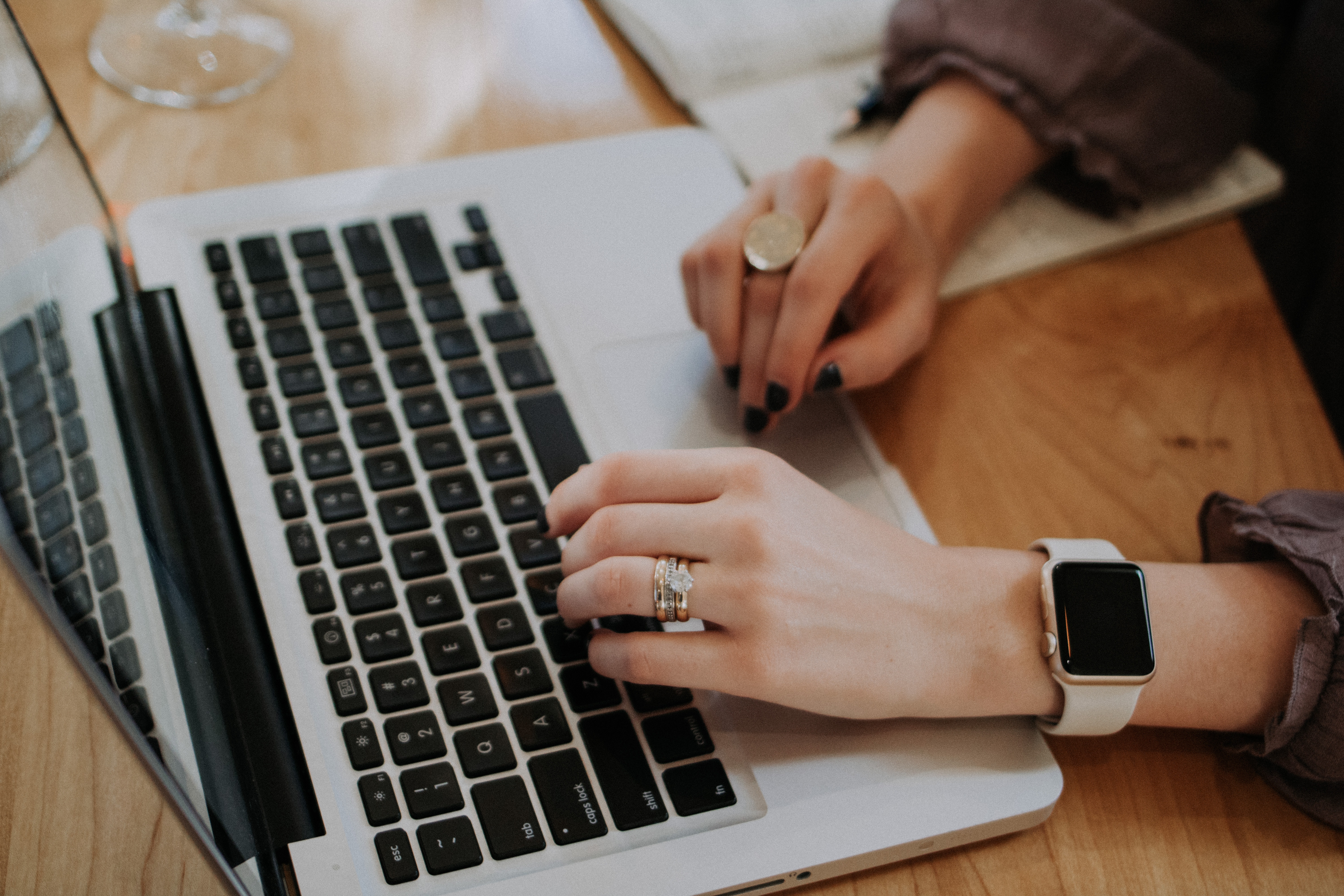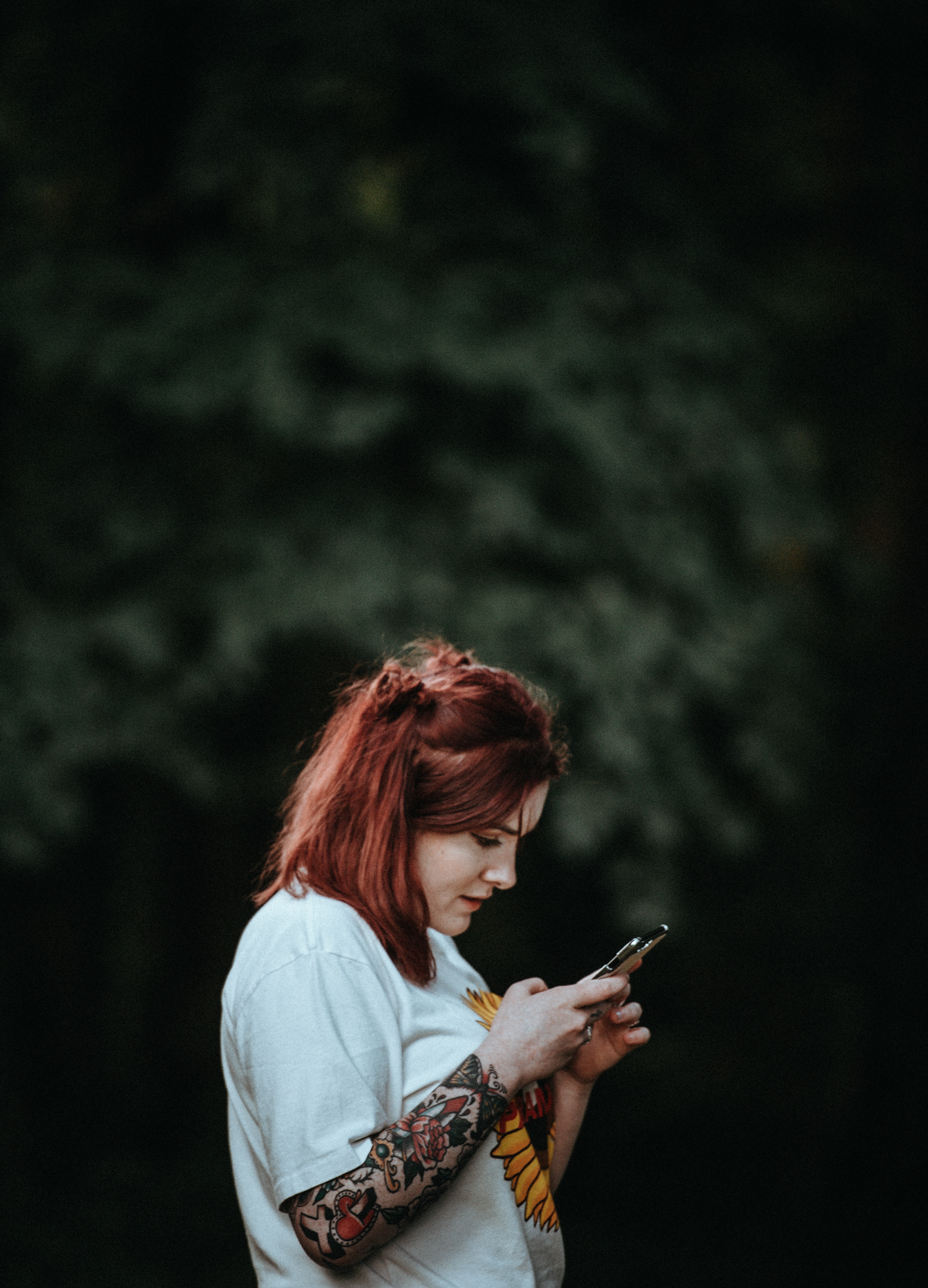Self-care practices to stay happy and healthy when using social media
For most of us, social media is a huge part of our lives. Whether we’re on it for work or play, it has the power to consume our time, energy and - if we let it - our happiness. This can be especially true if you’ve had (or have) mental health concerns.
While mental health is a topic that’s more freely talked about, many still get it wrong. When these misconceptions and misunderstandings are plastered across the Internet, we’re left with a host of triggering and upsetting social media bumf to wade through.
Combine this with the insidious nature of certain social media habits (comparing yourself to others, engaging with trolls etc.) it’s no surprise that for many, the experience of being online is a negative one.
This doesn’t have to be the case though. There are things you can do to protect yourself and cultivate a happy and healthy relationship with social media.
For me, social media has become a source of inspiration, connection and hope - but as someone with a history of eating disorders and anxiety, I have to tread carefully.
Here are a few ideas to help you practise a little online self-care.
Out with the old
“For me, it’s really important that the accounts I follow don’t make me feel bad about myself. I think it’s worth keeping an eye on how different people and accounts make you feel, and if that’s not good... then unfollow!” - Jo Paterson (@_jopaterson on Instagram)
Take a good hard look at who you’re following on social media and decide if they bring you joy. Yes, I want you to go full Marie Kondo on your social media accounts. If there are people you follow who make you feel bad about yourself or less than worthy - unfollow, block or mute.
Remember, you have ultimate control over who you follow, so if they don’t spark joy in your social media world - get rid.

In with the new
Now you’ve made lots of lovely space in your feeds, it’s time to fill them with people who inspire you, lift you up and make you feel amazing. In my social media world, this means a lot of people in the body positivity community, mental health advocates, creatives and friends who make me feel like I can achieve anything I put my mind to.
Identify your online sore-spots
Awareness is the first step to change. Think about what triggers you, what leads you to compare, whatever it is that leaves a bad taste in your mouth.
Once you know what your sore-spots are, you can think about how to prevent them, or cope with them when they crop up.
Genevieve Dutton (@helloquietx on Instagram) explains how she does this:
“I suppose I just notice. Notice when things feel ‘uncomfortable’; when things like anger, jealousy, frustration, a sense of invisibility take hold… When I feel something difficult building up, I often go in to ‘must do better on social media’ in my head, or ‘it’s all ridiculous, I should quit’ and I know that’s the time to take a step back and look at what’s really upsetting me.”
“Often it’s a sense of failing or envy and I look at what I can do to move towards the place I want to be, instead of being angry at my perception of someone else’s success.”
“The biggest warning for me is if social media makes me feel sad, I go away from it for a while. A day or two normally and I can see it afresh for what it is - full of inspiration and possibility but not a ‘whole’ life.”
Set barriers
If you know what specifically triggers you, you can set barriers to avoid these things happening. This may mean blocking certain accounts, muting words on Twitter or curating your explore page on Instagram.
Something I try and avoid on Instagram is diet/weight loss images. If these come up as an ad or in my explore page I simply click the three dots in the top right corner and tap ‘See fewer posts like this’. This trains the algorithm and teaches Instagram to show you more of the content you want to see.
Set boundaries
Your next step is to think about your social media habits as a whole and how healthy they are. If you find you’re wasting hours of your day on social media or are starting to feel low/anxious after using it - consider if you need to set boundaries on your time.
This may mean setting aside certain times in the day for you to check social media or even planning a social media break. As much as I love social media, taking a couple of days off from time to time gives me back some headspace and perspective.

If you have a habit of comparing yourself to others online, blogger Dora (@mamoradiary on Instagram) shares some advice:
“Don’t compare, just get inspired! There are times I come across feeds which are either beautiful or covering topics I have covered (or want to cover!). Instead of getting disheartened, I get totally inspired by it all. I feel like I want to get my teeth into that story too or the way it’s been styled.
“No matter how hard I try though, my work will never ever be the same as theirs - and that’s OK.”
Create a coping strategy
Sometimes, things take us off-guard online. For example, if there’s been a tragic world event, if there’s suddenly a lot of media attention on a certain aspect on mental health or if something you’ve posted garners the attention of trolls.
To prepare, try and come up with a coping strategy. This may be to take a break, to block certain words or make a pact to delete any negativity you receive.
The take-away...
Social media is an amazing place to connect with the world around us. I know I’ve made some wonderful friends through social media and it has no doubt supported my mental health. The trick is to remember who’s in control and that it only has as much power as you give it.
With the right mindset and practises, social media can become a place where mental health support and connection flourishes - because ultimately, we’re stronger together.

Comments